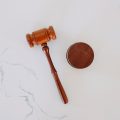
Over the past several months the public library in Jonesboro has made headlines for pro-LGBT and graphic, sexually-explicit material in the library’s children’s section.
Last week someone asked Family Council, point-blank: How is it that public libraries can give this kind of material to children? Doesn’t that violate the state’s obscenity and pornography laws?
Here’s the answer:
Arkansas’ obscenity law contains an exception for public libraries.
In 1981 the Arkansas Legislature passed Act 28. The law makes it a crime to distribute obscene material in Arkansas.
However, the law also contains an exception for schools, museums, and public libraries. It isn’t against state law for one of these institutions to distribute obscene material.
Arkansas also has a state law against “selling, loaning, or displaying pornography to minors.” However, to our knowledge that law has never been used against public libraries like the one in Jonesboro.
So why does Arkansas law let librarians distribute obscene material to children?
The answer isn’t clear, but it seems to be a combination of different court rulings as well as successful lobbying by organizations that represent schools, libraries, and museums.
That said, there’s nothing to stop communities from taking steps to remove obscene or objectionable material from their libraries.
Library boards and librarians have leeway to establish selection criteria and make decisions about the kinds of material available on the library’s shelves.
Library patrons generally can use a Material Reconsideration Form to ask libraries to get rid of obscene or inappropriate material.
Either way, there are steps that communities can take to make sure children aren’t exposed to harmful material at their local libraries.




